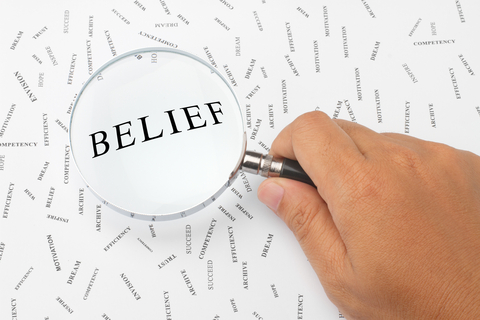
I was talking with a client this week about her fears around failure and embarrassment when she gives a presentation at work, and how she felt they weren’t normal. I commented that they were indeed normal, and that we all have these fears as human beings. It got me thinking about the different fears and needs we have, and how the ones below are so often triggered by public speaking.
Fear of:
- failure
- rejection
- embarrassment
- discomfort
- uncertainty
- not being good enough
And the needs we have:
- to be heard
- to be accepted
- to be loved
When you look at these lists, it’s no wonder that speaking in public is so difficult for so many people! It’s worth pointing out that I still feel these fears and needs, especially when I’m tired, run down, or have had a demoralising week. I’ve just learned what I need to do to look professional and competent, even if I don’t feel it in that moment. A key element to my learning what’s successful has been how I built belief in myself.
Belief’s a tricky one. It can be hard to pin down, and even researchers still don’t understand the precise mechanisms of how it works. But here’s what I’ve seen succeed; let me give you 3 perspectives: my own, people in the groups I run, and some research into building habits and how we change.
Belief in myself. When I was a truly awful speaker and crippled by stage fright, I decided to do something about it. So I joined a group to get feedback and to practise in front of others. Yes I was terrified when I picked up the phone to book in, but I knew it was the only way I would learn how to improve. The first night, my heart was beating out of my chest and I could hardly breathe. But people were kind and friendly, and as I drove home, I realised I was actually proud of myself for taking action. So I went back the next week. The process of building belief in myself had begun.
Belief building in the groups I run. One of the most common things I hear at the end of week 1 during my courses is that the participants realise they’re not alone; that other people have the same fears and needs that they do. And feedback at the end of the course is that by taking action and being supported and encouraged by the other people in the class, they’ve started to believe that they can be under stress and still maintain control and competence.
Research into new habits and how to change. I’m reading a fascinating book called “The Power of Habit; Why we do what we do and how to change” (Random House 2012) by Charles Duhigg. There’s a section on belief and how important it can be so that you don’t revert to unhelpful habits when you’re under stress. In a 1994 Harvard study of people who’d radically changed their lives, some had been through a major life stressor such a divorce or illness. But many others had changed because they joined groups that made change easier.
Duhigg says this: “When people join groups where change seems possible, the potential for that change become more real… There are simply communities – sometimes of just one other person – who make change believable.”
And one of the psychologists involved in the study, Todd Heatherton, said this: “Change occurs among other people. It seems real when we can see it in other people’s eyes.” This statement is worth re-reading!
Duhigg ends the section with this: “The evidence is clear: if you want to change a habit, you must find an alternative routine, and your odds of success go up dramatically when you commit to changing as part of a group”.
So if you want to build belief fast, it looks like getting a positive outside perspective would be a good move.
What do you think? Have you had success in changing something in your life through joining a group?